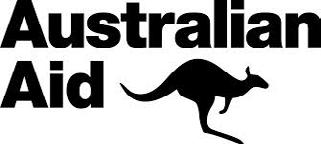
5 minute read
Voices from the Pacific
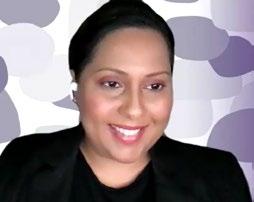
Dr Rachmna Ram
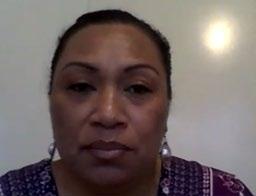
Dr Sepi Lopati
Advertisement
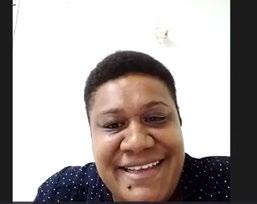
Dr Fane Lord
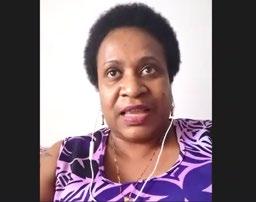
Dr Esther Apuahe
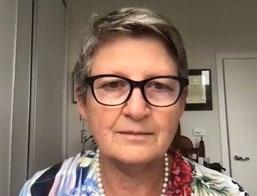
Dr Annette Holian
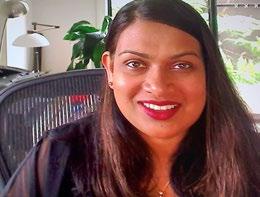
Dr Pecky De Silva
Voices from the Pacific: International Women’s Day event
On Monday 8 March 2021, in honour of International Women’s Day, medical professionals from around the world gathered for the ‘Voices from the Pacific’ forum, a webinar focused on the challenges, opportunities and experiences of women working and training as surgeons, anaesthetists and perioperative nurses across the AsiaPacific region.
The event was presented by Miss Annette Holian, Chair of the Royal Australasian College of Surgeons (RACS) Global Health Committee, and Dr Rachna Ram, a general surgeon from Fiji who specialises in Plastic and Reconstructive Surgery, currently undertaking her PhD in Melbourne. They hosted a panel that included Dr Fane Lord, an ear, nose and throat (ENT) surgeon from Fiji, Dr Esther Apuahe, a neurosurgeon from Papua New Guinea (PNG), Nerrie Raddie a perioperative nurse from the Solomon Islands, and Dr Sepi Lopati, an ENT surgeon from Tonga.
The event began with an address from Dr Ifereimi Waqainabete, Minister for Health and Medical Services in Fiji, who is himself a general surgeon.
Dr Esther Apuahe, the first female surgeon in PNG and a mother of three, talked about her challenges in being accepted by her male colleagues and patients, especially in the provinces. She hopes that her experiences made it easier for future generations of female surgeons, of whom there are now seven, and was especially proud that four of these women are now undertaking subspecialty training.
Dr Sepi Lopati is currently in Melbourne studying her Master of Surgery – Research degree on the prevalence of ear disease in primary school students in Tonga. As a mother to two young children while training, she found it difficult to find the appropriate training to suit her life. She found the lack of outside connections hard as she couldn’t travel for training and wanted help finding a pathway. Dr Lopati explained that women entering the surgical field is a recent phenomenon in Tonga, and stressed the challenges faced by women wanting to upskill.
Ms Nerrie Raddie, a perioperative nurse in Honiara, Solomon Islands, has firsthand experience in educating and facilitating training. When she began perioperative nursing in 2006, she found it very different from her work on the wards, yet there were no practice guidelines in place. Ms Raddie learned from senior nurses and became passionate about the field. Ms Raddie joined the Pacific Islands Operating Room Nurses Association and is now interim secretary.
In 2015, practice guidelines were developed for 14 Pacific Island countries, and in 2016, Ms Raddie attended the Pacific Perioperative Standards Implementation workshop in Fiji. From there, she “teamed up with colleagues to do presentations at international conferences, co-authored articles for ACORN [the Australian College of Perioperative Nurses] journal, became involved in mentoring activities both in-country and in Fiji.” She is excited to empower perioperative nursing practices and provide opportunities for women to excel in their profession.
Dr Fane Lord, a surgeon in Suva, Fiji, reflected on 16 years practising as a clinician with 13 years in the field of surgery. Dr Lord had always wanted to be a surgeon and applied for training every year, but when she was finally accepted she had a six-month-old baby. Luckily, she was offered a place again three years later and continued studying, specialising in ENT.
In 2017, she was a recipient of the Rowan Nicks Pacific Islands Scholarship and as a result completed a placement at Royal Adelaide Hospital. “I didn’t realise the depth or breadth of ENT until I went to the Royal Adelaide,” she said. “I felt out of my depth and was willing to learn as much as I could.” She continued mentorships on her return to Suva and believes that “now the onus is on me to impart whatever knowledge I’ve received – there’s a real shortage of female mentors.” Dr Lord also stressed the importance of family support. “You can’t do this alone,” she said.
Dr Pecky De Silva, a vascular surgeon and the Deputy Chair of RACS Women in Surgery and Chair of Younger Fellows committees, echoed the importance of female role models. “When you’re a smaller proportion, our duty is to carry that torch, to make our junior colleagues feel empowered and allow them to follow in our footsteps,” she said. Dr De Silva explained the four main themes of the strategic plan of the Women in Surgery Committee: leadership, role modelling, flexible training and advocacy. In the lively discussion that followed, all participants stressed the importance of loving the work. “I love being a surgeon,” said Dr De Silva. “I think it’s a great career. I’m so happy where I am and I hope I show that to all my junior doctors and medical students.”
Dr Apuahe agreed. “You must love what you choose,” she said. “If you have the heart for the job and a good support system, you’re able to cope and be up for the challenge.”
The group discussed the challenges of balancing a family at any stage of your career and developments that could make life easier for families, such as dedicated rooms for mothers and children, childcare services, flexible training and parental leave.
Miss Holian invited all participants and viewers to join the new RACS Global Health Section, designed to foster connection and communication with like-minded people. She suggested it can be a forum for discussions such as the ones they were having, whether someone is interested in learning more about training pathways or a particular disease, or looking for resources and support. “I see it as a great constellation of surgical shining stars connected across PNG and the Pacific,” she said.
All participants agreed there had been improvements over the years but there were still more changes to be made. As Ms Raddie said, “With challenge comes change. May we all choose to challenge.” RACS Global Health is committed to supporting and advocating for Pacific Island women clinicians through the Pacific Islands Program, an Australian aid initiative implemented by the Royal Australasian College of Surgeons on behalf of the Australian Government.
